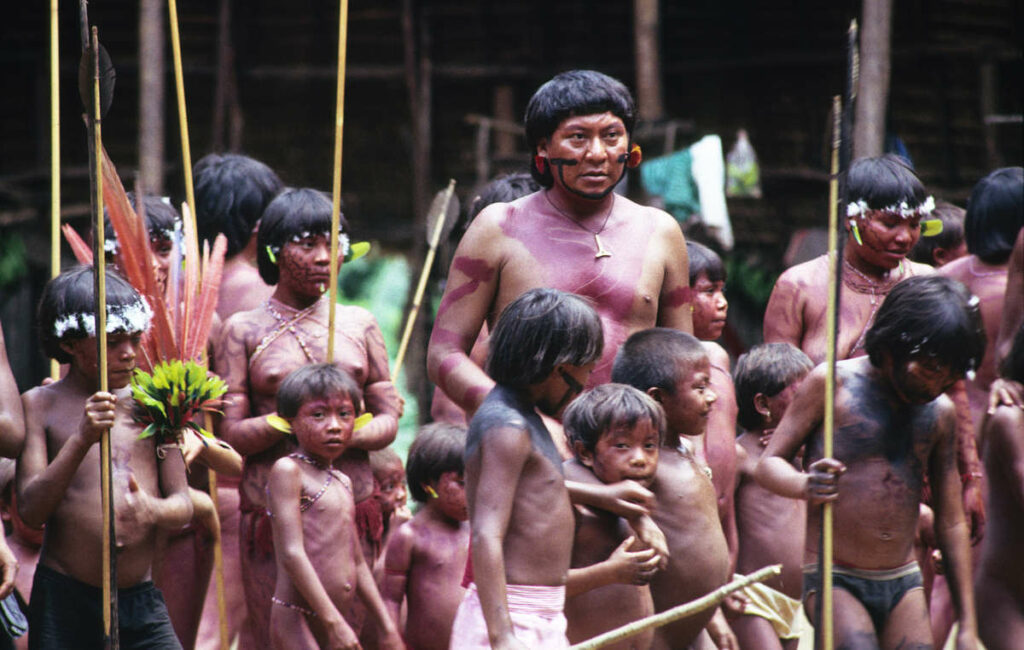Famous for their painted and pierced faces, the Yanomami are an Amazon indigenous group that lives largely isolated from the outside world. There are over 27,000 living in northern Brazil near the border with Venezuela, across 9.6 million hectares.

The first case of coronavirus among the Yanomami community was just reported by the Brazilian government, raising the alarm over their vulnerability. Their lack of contact with the outside world means they have not developed immunity to most modern diseases.
A Yanomami teenager died after being treated in a hospital in Boa Vista, the capital of the state of Roraima. So far, seven members of indigenous communities have died of COVID-19 in Brazil — a country called home by 300 ethnic groups.
The first one was a 20-year old woman that tested positive a week ago.
“Today we confirmed a case among the Yanomami, which is very worrying,” Health Minister Luiz Henrique Mandetta told a news conference on Wednesday. “We have to be triply cautious with [Indigenous] communities, especially the ones that have very little contact with the outside world.”
The indigenous association Hutukara blamed the child’s death for “inadequate medical care,” saying that he spent more than two weeks without a proper diagnosis from the first time he went to the hospital. They asked the government to control mining in the area, as miners could bring the disease into the community.
Greater risk
Like other ethnic groups in Brazil, the Yanomami were devastated in the 1970s by diseases such as measles and malaria, brought to the isolated community by activities such as farming, mining and cattle ranching. Up to 20% of their original population died in just seven years.
It’s hard to say just what the impact of COVID-19 will be in these indigenous tribes, but it’s likely that it will be devastating, not only due to their immune systems, but also due to social factors.
There are marked inequalities between indigenous people and their non-indigenous counterparts in almost all socioeconomic and health indicators — and indigenous people are clearly at a disadvantage. They tend to die at younger ages and their health is worse than that of other population groups.
Worldwide, more than 50% of indigenous adults over the age of 35 have type 2 diabetes, and these numbers are projected to increase. In some indigenous communities, diabetes has reached epidemic proportions and jeopardizes the very existence of the community, according to the United Nations. This raises even more concerns for the coronavirus outbreak, as diabetes is believed to be linked with more severe COVID-19 cases.
Brazil is the country in Latin America with the highest number of fatalities due to COVID-19, with 1,200 deaths and 22,000 people that tested positive so far. The state of Sao Paulo, where 40% of the population lives, faces the most delicate situation with over 8,700 cases.
Brazilian President Jair Bolsonaro has so far rejected establishing a mandatory lockdown in the country, despite recommendations by the World Health Organization. “We have the virus but we also have unemployment,” he wrote on Twitter.









